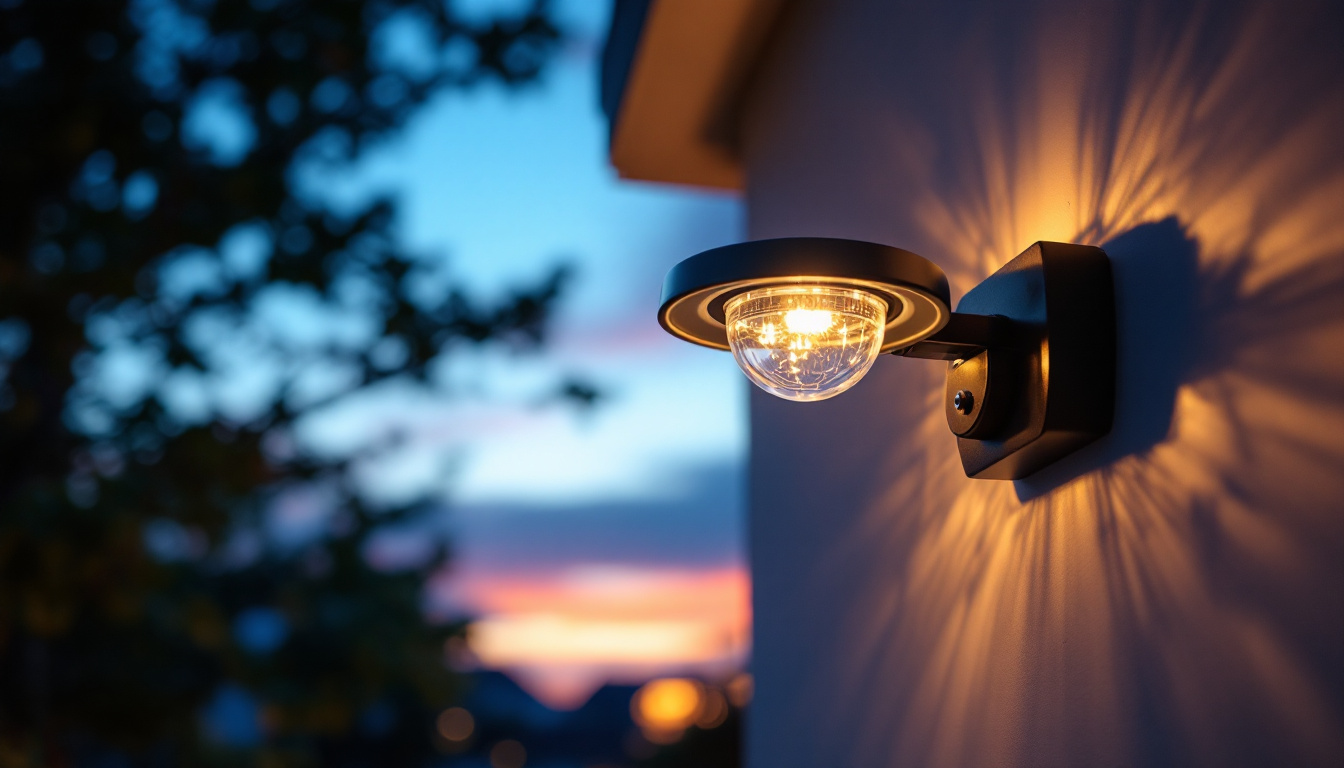
Light is an essential element of our daily lives, shaping how we perceive our surroundings and influencing our moods and productivity. The journey of light from its natural sources to the sophisticated artificial lighting systems we rely on today has been a fascinating evolution. For lighting contractors, understanding this history can provide valuable insights into the industry and help boost business. This article delves into the inception of artificial light, the role of lighting contractors, and how they can enhance their business prospects.
Throughout history, humans have sought ways to illuminate their environments. The earliest forms of light were derived from natural sources, such as the sun and fire. However, as civilization progressed, so did the need for more controlled and sustainable lighting solutions. The invention of various lighting technologies marked significant milestones in this journey.
The transition from fire to more advanced lighting methods began with the discovery of oil lamps and candles. These early inventions provided a more manageable and safer way to produce light. As society advanced, the development of gas lighting in the 19th century revolutionized urban environments, allowing streets and homes to be illuminated more effectively.
However, the true breakthrough came with the invention of the incandescent light bulb. This innovation not only transformed how people lived and worked but also laid the foundation for the modern lighting industry. The ability to produce light on demand changed the dynamics of architecture, urban planning, and even social interactions. The incandescent bulb, popularized by Thomas Edison, became a symbol of progress and innovation, leading to longer working hours and a bustling nightlife that reshaped social norms.
Electric lighting emerged as a game-changer in the late 19th century, providing a cleaner, safer, and more efficient alternative to gas and oil lamps. The introduction of electric bulbs allowed for greater flexibility in design and application, leading to the creation of various lighting fixtures that catered to different needs. This period saw the birth of iconic designs, such as the chandelier and the pendant light, which not only served functional purposes but also became central elements of home and public decor.
As electric lighting became more widespread, the demand for skilled professionals in the field surged. This demand gave rise to a new profession: lighting contractors. These experts not only installed lighting systems but also educated clients on the benefits of various lighting solutions, thereby enhancing the overall quality of life. Furthermore, the advent of electric lighting spurred advancements in electrical engineering and technology, leading to innovations such as dimmers and smart lighting systems. These developments allowed users to customize their lighting experiences, paving the way for the integration of lighting into the broader context of home automation and energy efficiency.
Lighting contractors play a crucial role in the construction and renovation industries. Their expertise is essential in ensuring that lighting systems are installed correctly, efficiently, and safely. They are responsible for assessing the specific needs of a space and recommending appropriate lighting solutions.
One of the primary responsibilities of a lighting contractor is to understand the unique requirements of each client. This involves evaluating the intended use of a space, the desired ambiance, and energy efficiency considerations. By conducting thorough assessments, lighting contractors can tailor their recommendations to suit individual preferences and requirements.
Moreover, staying updated on the latest trends and technologies in lighting is vital. Clients often seek contractors who can provide innovative solutions that enhance aesthetics while also being energy-efficient. This knowledge not only helps in meeting client expectations but also positions contractors as industry leaders. For instance, the rise of smart lighting systems has transformed how spaces are illuminated, allowing for customizable settings that can be controlled via smartphones or home automation systems. Understanding these advancements enables contractors to offer cutting-edge solutions that align with modern lifestyles.
Once the appropriate lighting solutions are selected, the installation process begins. Lighting contractors must ensure that all installations comply with local codes and regulations. This aspect of the job requires a deep understanding of electrical systems and safety protocols. Additionally, they often collaborate with other professionals, such as electricians and interior designers, to ensure that the lighting integrates seamlessly with the overall design of the space.
Maintenance is another critical component of a lighting contractor’s role. Regular inspections and upkeep of lighting systems ensure longevity and optimal performance. Offering maintenance services can also create ongoing relationships with clients, leading to repeat business and referrals. Furthermore, proactive maintenance can help identify potential issues before they escalate, saving clients time and money in the long run. Many contractors also provide clients with guidance on how to care for their lighting systems, such as recommending the best types of bulbs for different fixtures or the importance of regular cleaning to maintain brightness and efficiency.
In a competitive market, lighting contractors must find ways to differentiate themselves and attract new clients. Here are several strategies that can help boost business and enhance visibility.
With growing concerns about environmental sustainability, energy-efficient lighting solutions have become increasingly popular. Lighting contractors can capitalize on this trend by promoting energy-efficient products, such as LED lighting. Educating clients about the long-term cost savings and environmental benefits of these solutions can significantly influence purchasing decisions.
Additionally, contractors can offer energy audits to assess existing lighting systems and recommend upgrades. This proactive approach not only positions contractors as knowledgeable professionals but also fosters trust and credibility with clients. By providing detailed reports on energy consumption and potential savings, contractors can help clients make informed decisions that align with their sustainability goals. Furthermore, showcasing case studies of previous projects where energy-efficient upgrades resulted in substantial savings can serve as powerful testimonials to persuade potential clients.
Embracing technology can give lighting contractors a competitive edge. Utilizing design software and tools can help visualize lighting layouts and create compelling presentations for clients. Virtual reality (VR) and augmented reality (AR) can also be employed to showcase how different lighting solutions will look in a space, enhancing client engagement.
Moreover, maintaining an online presence through a professional website and social media platforms can attract new clients. Sharing project portfolios, client testimonials, and informative content can help establish authority in the field and drive traffic to the business. Additionally, incorporating video content, such as tutorials on lighting design or behind-the-scenes looks at project installations, can further engage audiences and highlight the contractor’s expertise. Regularly updating a blog with articles on industry trends, tips for choosing the right lighting, and innovations in technology can also position the contractor as a thought leader in the lighting industry.
Building relationships with other professionals in the construction and design industries can open doors to new opportunities. Networking with architects, interior designers, and builders can lead to referrals and collaborations on larger projects. Participating in industry events and trade shows can also help contractors stay connected and informed about emerging trends.
Additionally, joining professional organizations can provide valuable resources, training, and networking opportunities. These connections can enhance a contractor’s reputation and lead to new business ventures. Engaging in community events or local business groups can also expand a contractor’s network beyond the industry, creating partnerships that may lead to unique projects or referrals. By actively participating in discussions and sharing insights, contractors can build a reputation as go-to experts in their field, making them more likely to be recommended by peers and clients alike.
Effective marketing is essential for any business looking to grow. For lighting contractors, specific strategies can help reach potential clients and showcase their expertise.
Content marketing involves creating valuable and informative content that addresses the needs and interests of potential clients. For lighting contractors, this could include blog posts, how-to guides, and videos demonstrating the benefits of various lighting solutions. By providing valuable information, contractors can position themselves as experts in the field and build trust with their audience.
Additionally, sharing case studies of successful projects can illustrate the contractor’s capabilities and the impact of quality lighting on different spaces. This not only showcases expertise but also provides potential clients with inspiration for their own projects.
Implementing SEO strategies can significantly enhance a contractor’s online visibility. By optimizing their website for relevant keywords, lighting contractors can improve their chances of appearing in search engine results when potential clients are looking for lighting solutions.
Incorporating local SEO tactics, such as optimizing for location-based searches, can also help attract clients in the contractor’s service area. Encouraging satisfied clients to leave positive reviews on platforms like Google My Business can further enhance visibility and credibility.
Social media platforms offer an excellent opportunity for lighting contractors to connect with potential clients and showcase their work. Regularly posting updates, project highlights, and engaging content can help build a loyal following and create a community around the brand.
Engaging with followers by responding to comments and messages can foster relationships and encourage referrals. Additionally, running targeted advertising campaigns on social media can help reach a wider audience and generate leads.
The journey of light from its natural origins to the sophisticated systems we use today has been marked by innovation and evolution. Lighting contractors play a vital role in this industry, providing expertise and solutions that enhance the quality of life for their clients. By understanding the history of light, embracing modern technologies, and implementing effective marketing strategies, lighting contractors can significantly boost their business prospects.
As the demand for energy-efficient and aesthetically pleasing lighting solutions continues to grow, the opportunities for lighting contractors are vast. By staying informed, adapting to trends, and prioritizing client satisfaction, contractors can thrive in this dynamic field and illuminate the path to success.
Ready to elevate your lighting game and drive your business forward? At LumenWholesale, we provide lighting contractors like you with the highest quality, spec-grade lighting products at prices that can’t be beaten. Say goodbye to local distributor markups and hello to our extensive selection that meets rigorous industry standards. With free shipping on bulk orders, you can trust that you’re getting premium lighting solutions at the best value, with no hidden fees. Don’t compromise on quality or cost. Visit LumenWholesale today and experience the ultimate in affordability, convenience, and quality for all your lighting needs.

Explore the benefits of LED dusk to dawn lights and discover why they’re indispensable for lighting contractors.

Discover how to transform your home office with the perfect light fixtures.

Discover how integrating LED wall packs with photocells can revolutionize your lighting business.

Discover how U-shaped fluorescent light bulbs are revolutionizing the lighting industry for contractors.